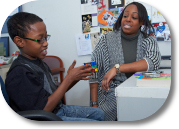Amy Tarabokia’s son, Nicholas, was diagnosed with leukemia in 2006 just shy of his fourth birthday, and received his last treatment in 2009 on his seventh birthday. She notes that there are many support groups for families but very few, if any, just for moms. "Moms take care of everyone else and tend to put themselves 'on the back burner'.” One of the things she remembers most vividly is the overwhelming feeling of isolation, particularly when Nicholas was quarantined and her “only outlet was the phone.” She tried to stay positive but there was a “constant dark cloud” hovering over her. The Valerie Fund Mom2Mom program gives moms a way to connect with kindred spirits who understand what it means to have a sick child because they have been there themselves.
read more »
Topics:
Blood Disorders,
cancer,
moms,
caregivers,
support group
Unless your child is attending a tuition free college (and there are a few of those schools out there), the average cost of getting a four - year degree is now conservatively priced at $180,000 (private) and $95,000 (in state public). While these figures include virtually all of the costs associated with higher learning---tuition, housing, meals, books and school supplies, fees and transportation--- not many people can avoid the sense of sticker shock and foreboding when thoughts turn to paying for this privilege.
As education costs continue to rise, The Valerie Fund Scholarship Committee has seen a steady increase in applications from both pediatric cancer patients and those living with blood disorders. “These are outstanding kids,” says committee member Debbie Schiller, “they’re hardworking and highly motivated to get the best education they can. Their applications reflect a universal anxiety about how to make up the difference between tuition costs and what their families can afford to pay.”
read more »
Topics:
Pediatric Cancer,
Blood Disorders,
cancer,
scholarship,
scholarship program
As medical science allows us to become more proficient at saving the lives of pediatric cancer patients, their need for survivorship support in adolescence and adulthood has grown. Approximately two out of three children experience at least one long term side effect (late effect) of treatment. These side effects may affect any organ depending on the primary cancer diagnosis and the treatment the child received. These may include damage to the heart, lungs, kidneys, sexual organs, as well as cause psychosocial, emotional effects and learning difficulties. In addition, there may be difficulty in obtaining health and life insurance as well as possible discrimination in adulthood obtaining a job.
read more »
Topics:
Pediatric Cancer,
cancer,
LITE,
long term follow up,
long term care,
childhood cancer,
side effects,
late effects
“Mommy, I want to do normal things, like other kids…”
When your child has cancer, there are no easy answers to this familiar and heart-wrenching refrain. The Valerie Fund has always known this, and in 1983, the organization took a giant step to give children with cancer at least one experience other kids have – going away to summer camp.
read more »
Topics:
Pediatric Cancer,
camp happy times,
camp
Palliative care relieves symptoms of serious illness such as pain, discomfort and stress in order to help the patient maintain an acceptable level of comfort throughout all stages of treatment. This care integrates all supportive services and expertise into a single synergistic unit focused on improving patients' quality of life. Once associated with end of life care, palliative care is now used to provide relief beginning at diagnosis all the way through to survivorship, or end of life.
read more »
Topics:
pediatric,
palliative care
Sickle cell is a preventable genetic disorder. In the U.S., it almost exclusively affects African-Americans. It is usually diagnosed in the first year of life and rarely curable. Regardless of regular medication and lifestyle adjustments, such as minimal exposure to cold weather, the disease causes excruciating, unrelenting pain for which morphine and other medications must be administered—even in the youngest children. This happens because the body produces abnormal, sickle-shaped blood cells that clog the flow of blood.
read more »
Topics:
Blood Disorders,
sickle cell
 Physicians are trained to utilize modern scientific means to combat cancer at its source, but they are the first to admit these treatments that “cure” can take a huge toll on the patient. The side effects of chemotherapy and radiation are well known: pain, discomfort, nausea and other issues that require their own set of treatments. That the physical well-being of the patients with life-threatening illnesses is inextricably linked to their emotional state has become widely accepted. Merging integrative health services with medical care and psychosocial support can improve the quality of treatment for these patients.
Physicians are trained to utilize modern scientific means to combat cancer at its source, but they are the first to admit these treatments that “cure” can take a huge toll on the patient. The side effects of chemotherapy and radiation are well known: pain, discomfort, nausea and other issues that require their own set of treatments. That the physical well-being of the patients with life-threatening illnesses is inextricably linked to their emotional state has become widely accepted. Merging integrative health services with medical care and psychosocial support can improve the quality of treatment for these patients.
read more »
Topics:
integrative medicine,
Pediatric Cancer,
Blood Disorders,
holistic healing
Children diagnosed with a long-term or chronic illness, such as cancer or a blood disorder, may have difficulty managing a typical school schedule for weeks or even months. Navigating the school system adds yet another burden to parents already juggling the emotional impact of their child’s illness and the impact it has on their ability to maintain a work schedule while also tending to the needs of their healthy children. Children are removed from the basic framework of their childhood: the world of school, which structures each day and is the main source of their social environment. Virtually every child will require some type of special arrangements with the school and sometimes the school system.
read more »
Topics:
educational liaison,
education,
Pediatric Cancer
Pediatric psychologists play a prominent role in helping patients and families manage the impact of having a life threatening disease. From the moment a child and their family arrive at the hospital there is an urgency to confirm a suspected diagnosis of cancer or a blood disorder and begin treatment. Not only is their world turned upside down, the medical and psychosocial implications of the disease and treatment are major and ongoing. Parents who have difficulty coping with their child’s cancer diagnosis feel relieved after hearing that it is common for many parents to experience the same feelings. Some are unsure about how to discipline a child battling an illness. Siblings may experience their own fears and anxieties, and may receive less attention from parents while their brother or sister is in treatment. On-site psychologists offer psychological counseling services to patients and their parents when these needs arise
read more »
Topics:
psychologists,
psychosocial support
Social workers provide pediatric patients with the emotional support and expertise that comes from those who understand their needs. They can address the very natural and real fears patients face based on the individual child’s personality and where they are developmentally, whether the child is three years old or seventeen years old. Having psychosocial clinicians work through issues with patients and parents increases their level of comfort and compliance in accepting a treatment plan. And that can mean the difference between life and death.
read more »
Topics:
psychosocial support,
social worker



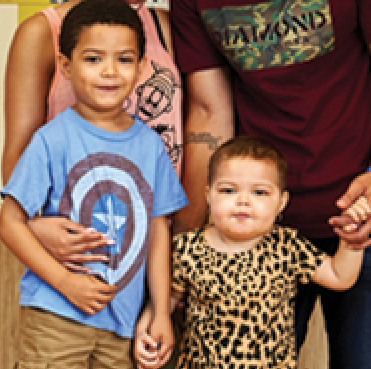

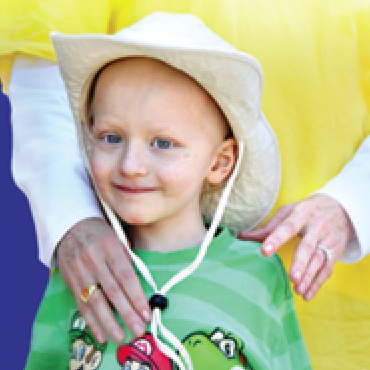


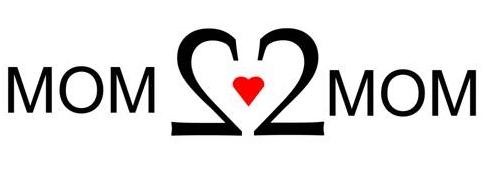



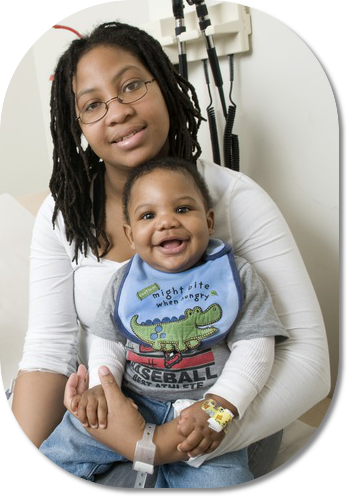
 Physicians are trained to utilize modern scientific means to combat cancer at its source, but they are the first to admit these treatments that “cure” can take a huge toll on the patient. The side effects of chemotherapy and radiation are well known: pain, discomfort, nausea and other issues that require their own set of treatments. That the physical well-being of the patients with life-threatening illnesses is inextricably linked to their emotional state has become widely accepted. Merging integrative health services with medical care and
Physicians are trained to utilize modern scientific means to combat cancer at its source, but they are the first to admit these treatments that “cure” can take a huge toll on the patient. The side effects of chemotherapy and radiation are well known: pain, discomfort, nausea and other issues that require their own set of treatments. That the physical well-being of the patients with life-threatening illnesses is inextricably linked to their emotional state has become widely accepted. Merging integrative health services with medical care and 

